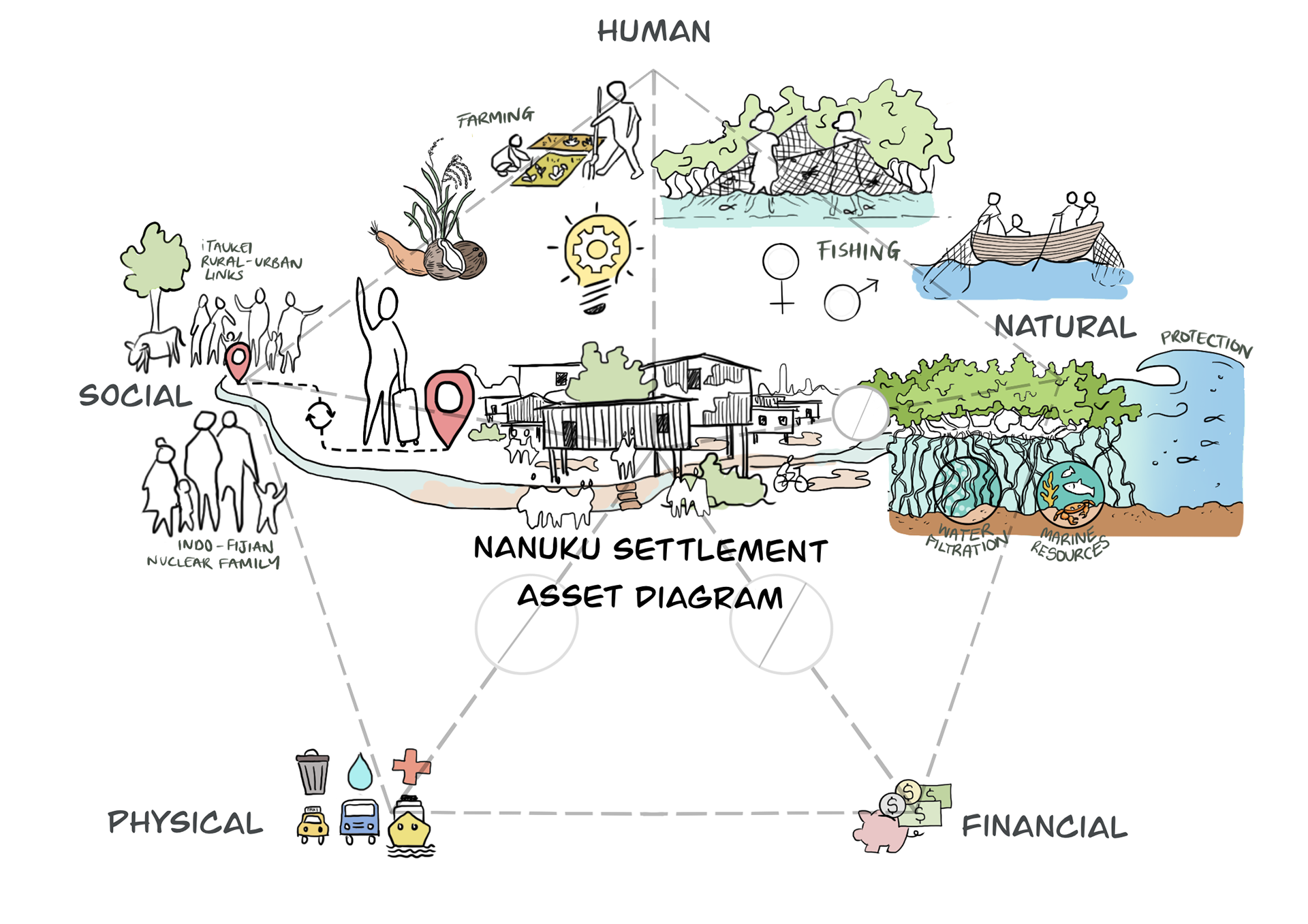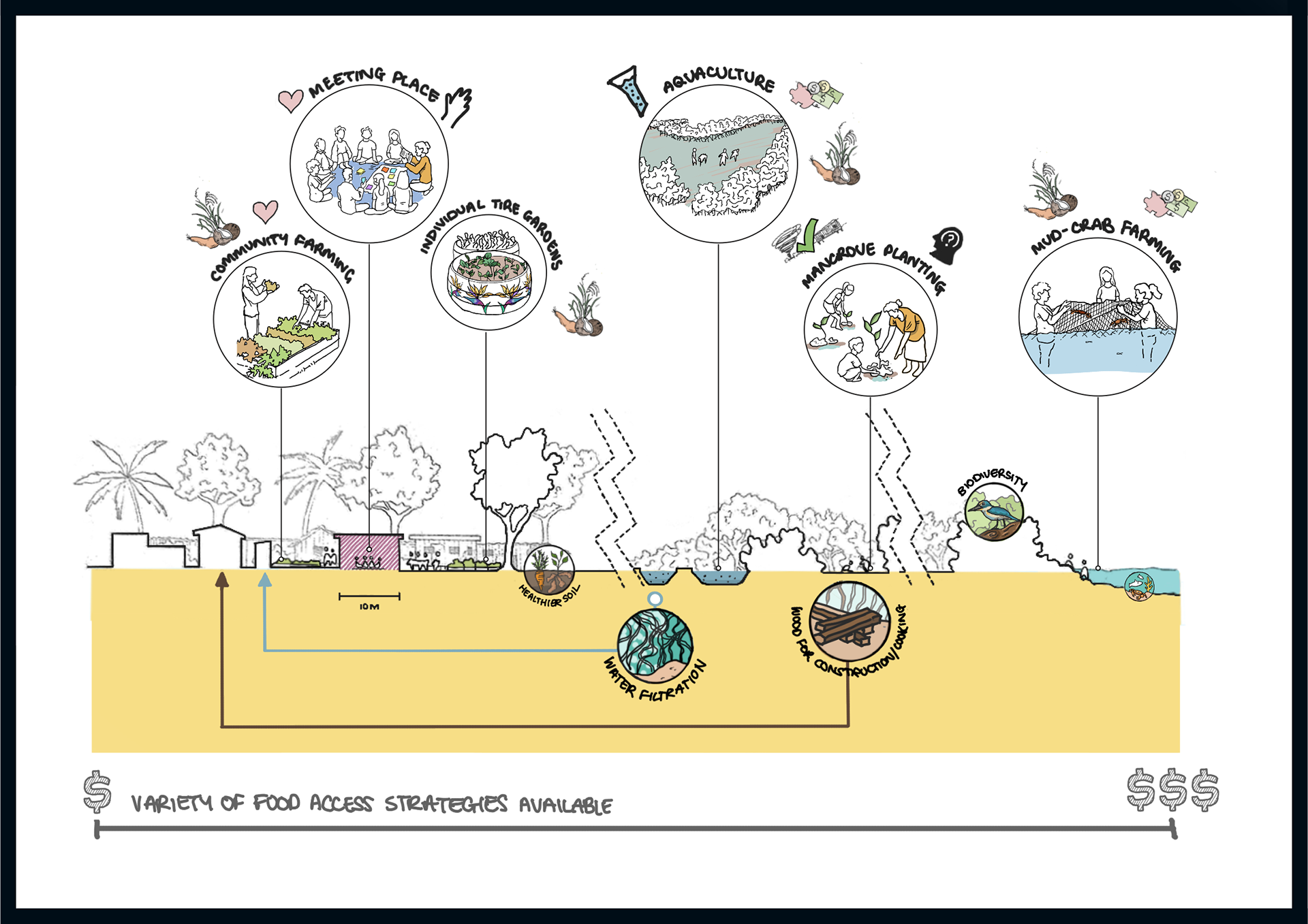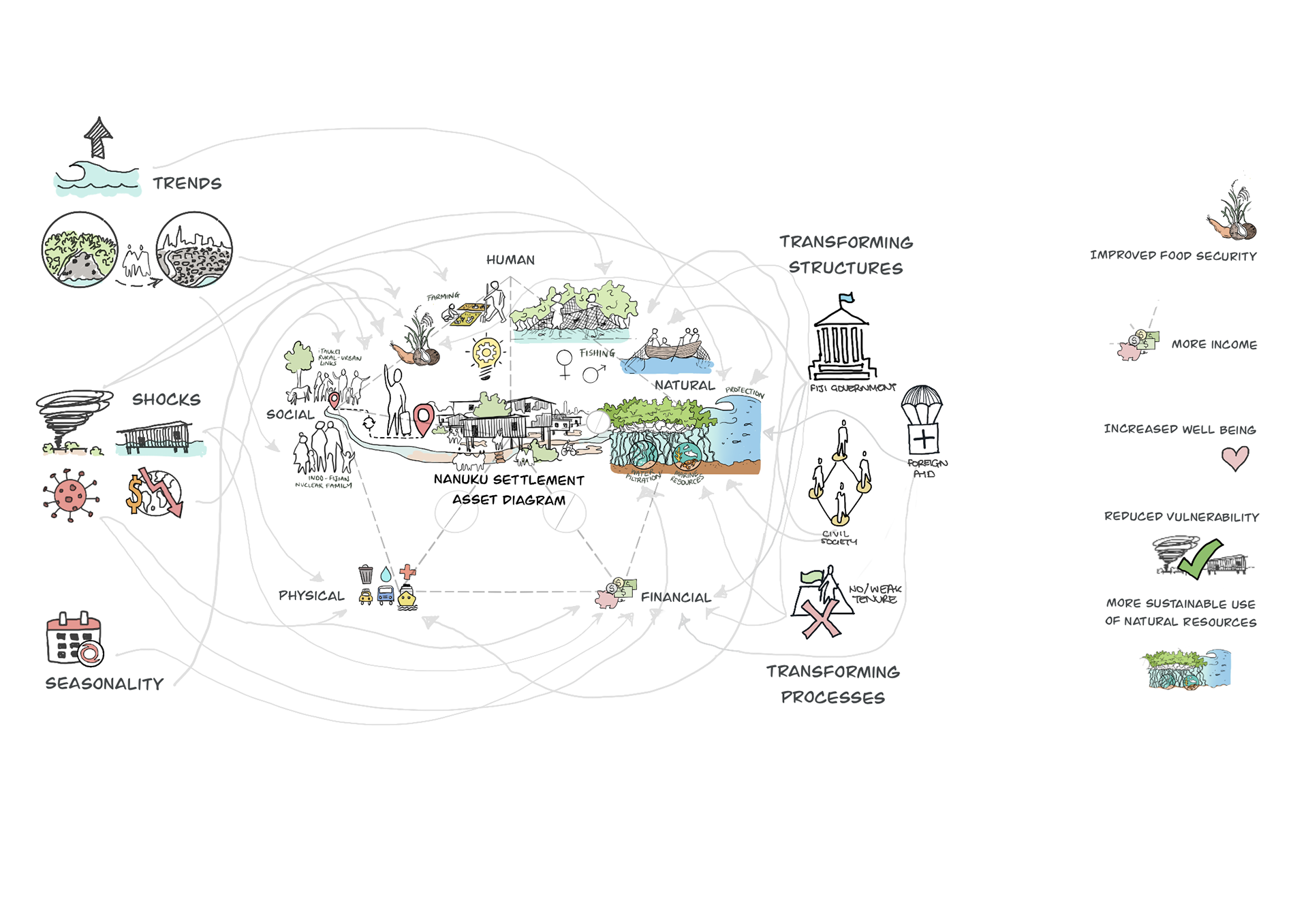Scope: Speculative Design Research
Status: Completed, 2020*
*research was continued during Masters 2021-2022
Initial research question: How can existing villages in Fiji be redesigned to be cyclone-resistant at no extra cost to the
community?
community?
Testing holistic, cross-sectoral shelter strategies to address non-economic losses caused by climate-induced displacement in Fiji, this particular research project spanned over three years and 3 different contexts. Cultural loss due to climate change often gets forgotten in displacement strategies and research but it is critical to the wellbeing of the communities impacted.
Access to good, nutritional food is a basic human right. Yet, many islands in the South Pacific are reliant on imported processed food, particularly in the aftermaths of increasingly common cyclones. Research has shown that regenerative, intercropping can protect farms from these storms. Some islands, such as Fiji, have started to implement this but only as income streams through exports to larger countries. In order to ensure people here have access to nutritional food post-storm, these methods need to be introduced into local subsistence farms, close to villages. Research has also shown that intercropping can lead to healthier soil which could lead to better building foundations and therefore overall storm resilience. This is not a novel solution. Instead, by surveying and analysing existing processes, there is potential to design a comprehensive land strategy that, in its simplest form, rearranges and enhances current systems in place to achieve greater disaster resilience at little to no extra cost to the community, with food at its heart.
Creating a sheltered agricultural heart would ensure readily available fresh food, particularly in the aftermath of a storm, where currently many rely on processed food until they are able to travel to bigger ports for produce.


